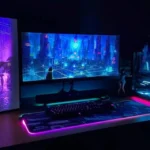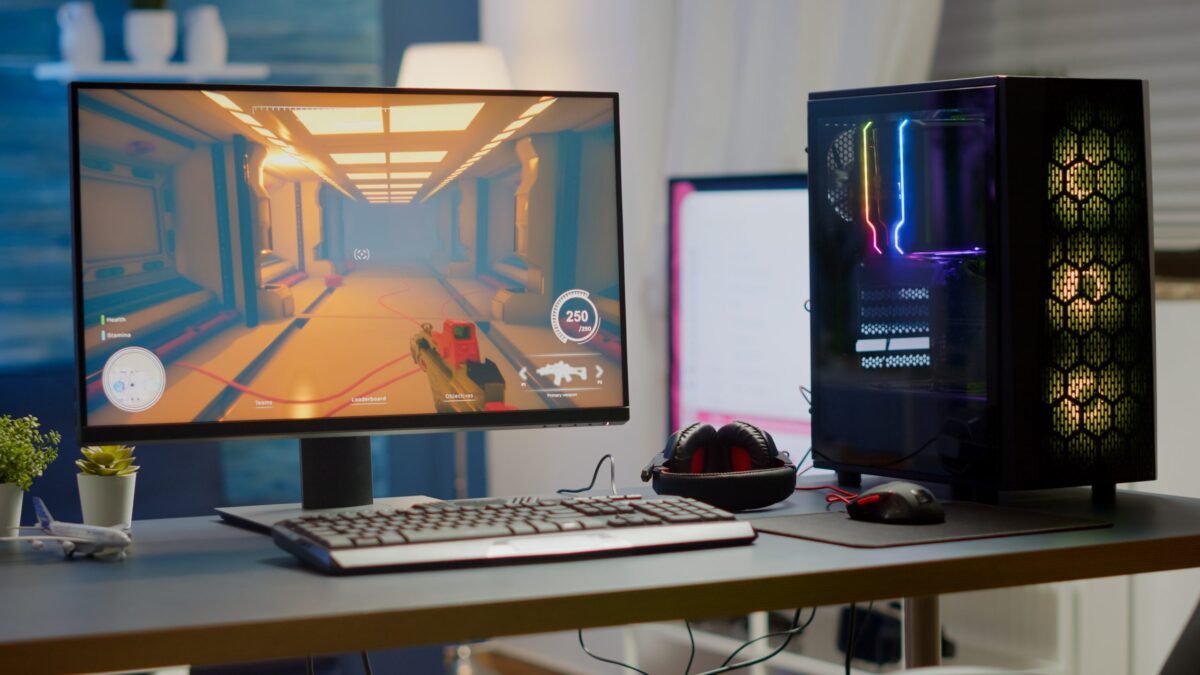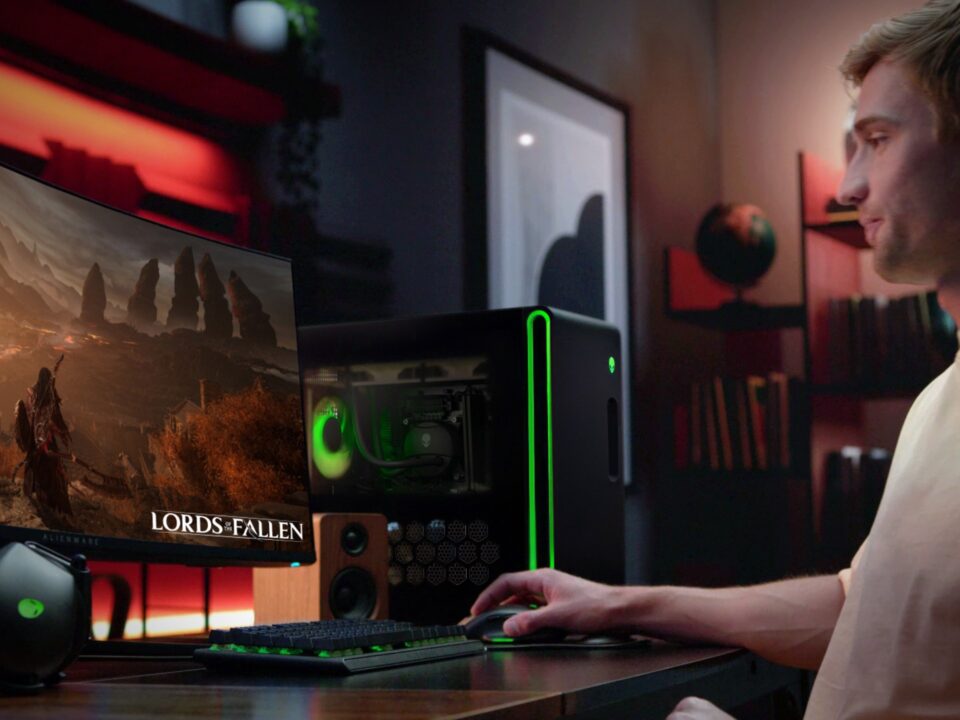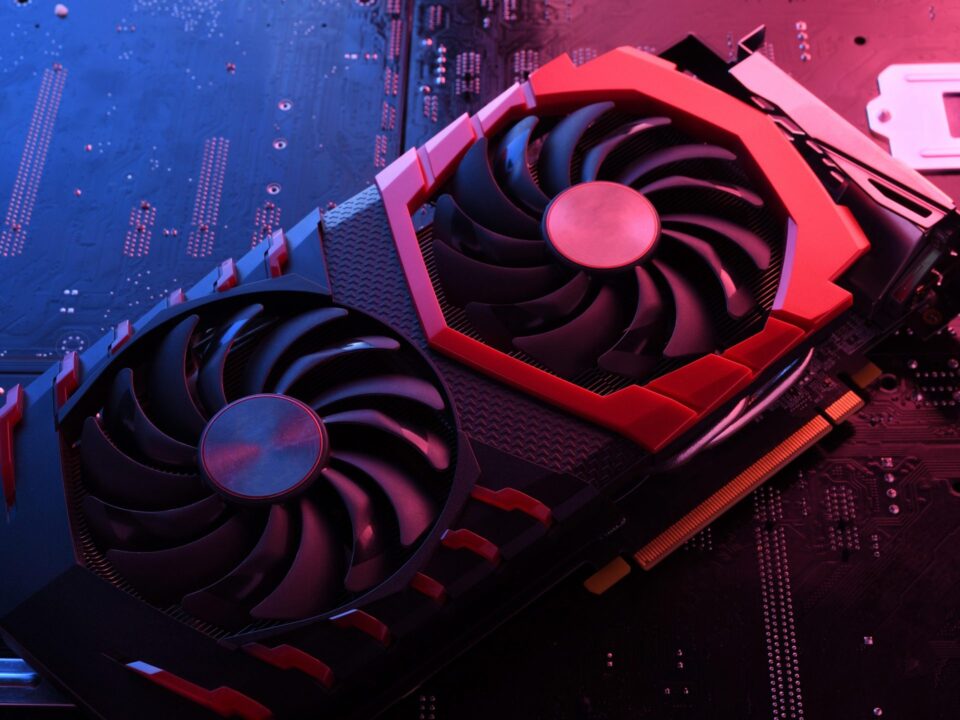
The Future of Gaming PCs: Trends to Watch
October 15, 2020
Building a Budget Gaming PC: What You Need to Know
October 15, 2020As the gaming industry rapidly evolves, so does the technology that powers your gaming experience. Whether you’re a casual gamer or a competitive esports enthusiast, keeping your gaming PC up-to-date is essential to ensure smooth performance, enhanced graphics, and an immersive gaming environment. Upgrading your gaming PC can extend its lifespan, improve gameplay, and save you from the hefty costs of building a new system from scratch. This guide will help you determine when to upgrade your gaming PC and what components to focus on for optimal performance.
1. Assessing the Need for an Upgrade
Before diving into specific components, it’s crucial to evaluate whether your current gaming PC truly needs an upgrade. Consider the following indicators:
- Performance Lag: If your games are running slower than desired, with frequent frame drops or stuttering, it might be time to upgrade.
- Incompatibility with New Games: Newer games often require more powerful hardware. If your system struggles to meet the minimum or recommended specifications, an upgrade is warranted.
- Hardware Failures: Frequent crashes, overheating, or hardware malfunctions can signal the need for component replacements or upgrades.
- Future-Proofing: Anticipating upcoming game releases or new technologies (like VR) can help you plan upgrades in advance to maintain optimal performance.
2. Central Processing Unit (CPU) Upgrades
The CPU is the brain of your gaming PC, handling all instructions from hardware and software.
- When to Upgrade:
- If you’re experiencing bottlenecks where the CPU limits your GPU’s performance.
- When upgrading to more CPU-intensive games or applications.
- If your current CPU is outdated and unable to support newer technologies or multitasking efficiently.
- What to Upgrade:
- Latest Generation CPUs: Upgrading to the latest generation processors from AMD (Ryzen series) or Intel (Core series) can provide significant performance boosts.
- Higher Core Count: For better multitasking and handling more demanding games, consider CPUs with more cores and threads.
3. Graphics Processing Unit (GPU) Upgrades
The GPU is paramount for rendering high-quality graphics and ensuring smooth gameplay.
- When to Upgrade:
- If you’re experiencing low frame rates, especially at higher resolutions and settings.
- When new games require more powerful GPUs to run optimally.
- If you want to take advantage of advanced features like ray tracing and higher refresh rates.
- What to Upgrade:
- Latest GPUs: Consider upgrading to the latest NVIDIA GeForce RTX or AMD Radeon RX series for enhanced performance and new features.
- Higher VRAM: GPUs with more Video RAM (VRAM) can handle higher resolutions and more detailed textures better.
4. Memory (RAM) Upgrades
RAM plays a crucial role in multitasking and ensuring games run smoothly.
- When to Upgrade:
- If your system frequently uses all available RAM, leading to slowdowns and stuttering.
- When running memory-intensive applications alongside gaming, such as streaming software or web browsers with multiple tabs.
- What to Upgrade:
- Increase Capacity: Upgrading from 8GB to 16GB or 32GB of DDR4/DDR5 RAM can significantly improve performance.
- Higher Speed: Faster RAM speeds (measured in MHz) can enhance overall system responsiveness and game performance.
5. Storage Upgrades
Fast and ample storage is essential for quick load times and storing your game library.
- When to Upgrade:
- If your current storage is nearly full, affecting system performance.
- When experiencing long load times and slow data access speeds.
- What to Upgrade:
- Solid State Drives (SSD): Upgrading to an NVMe SSD can drastically reduce load times and improve system responsiveness.
- Larger Capacity: Adding a secondary SSD or HDD can provide additional storage for games, applications, and media.
6. Power Supply Unit (PSU) Upgrades
A reliable PSU ensures that your components receive consistent and adequate power.
- When to Upgrade:
- If you’re upgrading to more power-hungry components like a high-end GPU or CPU.
- When experiencing system instability, such as unexpected shutdowns or restarts.
- What to Upgrade:
- Higher Wattage: Ensure your PSU can handle the increased power demands of upgraded components. A PSU with 650W to 850W is typically suitable for most high-end builds.
- Efficiency Rating: Opt for PSUs with higher efficiency ratings (80 Plus Bronze, Silver, Gold) for better power management and reliability.
7. Cooling System Upgrades
Effective cooling is vital to maintain optimal performance and longevity of your components.
- When to Upgrade:
- If your system is overheating, leading to thermal throttling and reduced performance.
- When upgrading to components that generate more heat, such as high-end CPUs and GPUs.
- What to Upgrade:
- CPU Coolers: Upgrading to a more efficient air cooler or a liquid cooling system can better manage CPU temperatures.
- Case Fans: Adding or replacing case fans can improve airflow and overall system cooling.
- Thermal Paste: Reapplying high-quality thermal paste can enhance heat transfer between the CPU and its cooler.
8. Motherboard Upgrades
While not always necessary, upgrading your motherboard can provide access to newer technologies and better performance.
- When to Upgrade:
- If you’re upgrading to a CPU that requires a different socket type or chipset.
- When needing more features, such as additional RAM slots, M.2 slots, or enhanced connectivity options.
- What to Upgrade:
- Latest Chipsets: Choose motherboards with the latest chipsets to ensure compatibility with new CPUs and technologies.
- Enhanced Features: Look for features like PCIe 4.0/5.0 support, USB 3.2 ports, and built-in Wi-Fi for better performance and connectivity.
9. Peripheral Upgrades
While not part of the core system, upgrading peripherals can enhance your overall gaming experience.
- When to Upgrade:
- If your current peripherals are outdated or lacking essential features.
- When seeking to improve ergonomics, responsiveness, or aesthetics.
- What to Upgrade:
- Monitors: Upgrading to a higher refresh rate or higher resolution monitor can provide a smoother and more immersive gaming experience.
- Keyboards and Mice: Invest in gaming-grade keyboards and mice with customizable features, better ergonomics, and higher responsiveness.
- Headsets: High-quality headsets with surround sound and noise-cancellation can improve in-game audio and communication.
10. Software and BIOS Updates
Keeping your system’s software and BIOS up-to-date ensures compatibility, security, and optimal performance.
- When to Upgrade:
- After installing new hardware components.
- When experiencing system instability or performance issues.
- What to Upgrade:
- Drivers: Regularly update GPU, motherboard, and other component drivers for improved performance and bug fixes.
- BIOS/Firmware: Updating the motherboard BIOS can enhance system stability and compatibility with new hardware.
Conclusion
Upgrading your gaming PC is a strategic way to enhance performance, extend the lifespan of your system, and keep up with the latest gaming technologies without the need for a complete overhaul. By assessing your current system’s performance, setting a realistic budget, and prioritizing essential components like the CPU, GPU, and RAM, you can make informed decisions that best suit your gaming needs. Remember to ensure compatibility between components and consider future-proofing to maximize the longevity of your upgrades. Whether you’re looking to achieve higher frame rates, better graphics, or a more responsive gaming environment, thoughtful upgrades can transform your gaming PC into a powerhouse that delivers an exceptional gaming experience.
Investing in regular upgrades not only keeps your system running smoothly but also enhances your overall gaming enjoyment. If you need personalized recommendations or assistance with upgrading your gaming PC, feel free to reach out to our support team at GamePC.top. We’re here to help you build and maintain the ultimate gaming setup!




